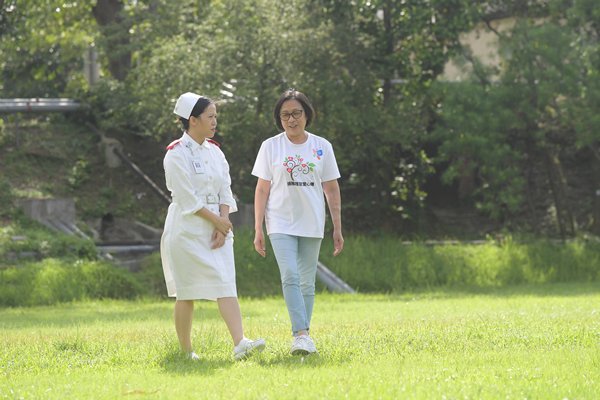Organ Donation Saves Lives

Ms Kwok was diagnosed with kidney failure in 1998 and had hemodialysis twice a week for three years before she received a kidney transplant.
She said the process was torturous.
“I sweated and experienced cramps when I was on hemodialysis. The only thing I could do before I fainted was to call the nurse for help.”
Ms Kwok was lucky to receive a kidney from a deceased donor in 2014 and said the donation has given her a new lease of life.
“I am so grateful for the decision made by the donor and their family.
“If they didn’t agree to donate the kidney, I’m not sure how long I would have to wait. I want to tell the donor’s family that the organ was a godsend.”
For families of deceased donors, their loss may mean new life for others.
Mr Lau’s wife passed away last year. He donated her organs according to her will.
“My wife didn’t register for organ donation. However, we talked about this issue when she was still alive and agreed that if either of us passed away, we would donate all organs if possible.
“We’re unable to keep our loved ones alive, but organ donations can be very meaningful.”
Simple process
Au Yeung Wing-yan, who has been working as an Organ Donation Coordinator in Kwong Wah Hospital for about three years, said people can let their families know their wish to donate organs to make the process straightforward.
“People will be quite emotional when they lose their loved ones. It will be tough for them to decide whether or not to donate organs. If they know the intention of their loved ones, things would be much easier.”
The Government established a centralised register in 2008 to facilitate organ donations.
However, some misunderstandings have discouraged people from signing up to the register. Some people may worry that they are too weak or too old to donate organs.
Department of Health Central Health Education Unit Medical & Health Officer Dr Luna Ko said most people can donate their organs after death.
“People with cancer, (for) most cancer types, their organs may not be suitable for donation, they can still donate their corneas after death,” Dr Ko said.
“The transplantation team will assess every potential donor individually to decide what kind of organs or tissue they can donate.”
She added that it is simple to sign up to the register online.
Donation call
As of July 26, more than 300,000 registrations were recorded in the Centralised Organ Donation Register.
According to the Hospital Authority, as of end-2018, more than 2,000 patients were waiting for kidney transplants, but there were only 60 kidney donations from deceased donors.
Dr Ko called on people to sign up as organ donors and give patients in need a second chance at life.
The Centre for Health Protection has also set up promotional booths at smart identity card replacement centres to encourage organ donation registration.
Parenting Support Heals Family Bonds
Mr Lui has been divorced for three years and is raising two children on his own. Both children have attention deficit/... Read more
Moving Waste Management Forward
Located on an artificial island near Shek Kwu Chau, the Integrated Waste Management Facilities Phase I, I·PARK1, repr... Read more
Walkway Fulfills Harbourfront Vision
Since opening late last month, the Eastern Section of the East Coast Boardwalk, at North Point, has been a popular dra... Read more
Hiking Challenge Honours Natural Gem
As the sun rises over Victoria Harbour, the city starts its day with people filling Lugard Road – jogging, walking d... Read more
Autonomous Vehicles Drive HK Forward
Autonomous driving technology is advancing rapidly, with the potential to boost traffic efficiency and improve road sa... Read more
Supercomputing Sparks AI Innovation
To promote the development of the local artificial intelligence (AI) ecosystem, the Government has allocated $3 billio... Read more

